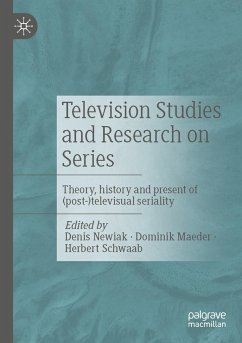Television series enjoy an unbroken - popular as well as scholarly - attention. It is surprising, however, that in works on seriality in media and cultural studies, approaches to television studies and television history still play a rather minor role. Yet seriality should always be thought of in terms of television, since the two have always been inextricably interwoven - economically, technically and aesthetically. But what else constitutes the serial in television and how does it change its face in times of digitalization, streaming and interactivity? Is it possible to think of a genuine serial theory of the televisual - and what, in turn, can be learned from this for seriality beyond television? The essays in this volume contribute to shedding new light on the serial as a core principle of television and to providing new impulses for a television theory of the serial on the basis of diverse examples from the current range of television series.
Bitte wählen Sie Ihr Anliegen aus.
Rechnungen
Retourenschein anfordern
Bestellstatus
Storno








